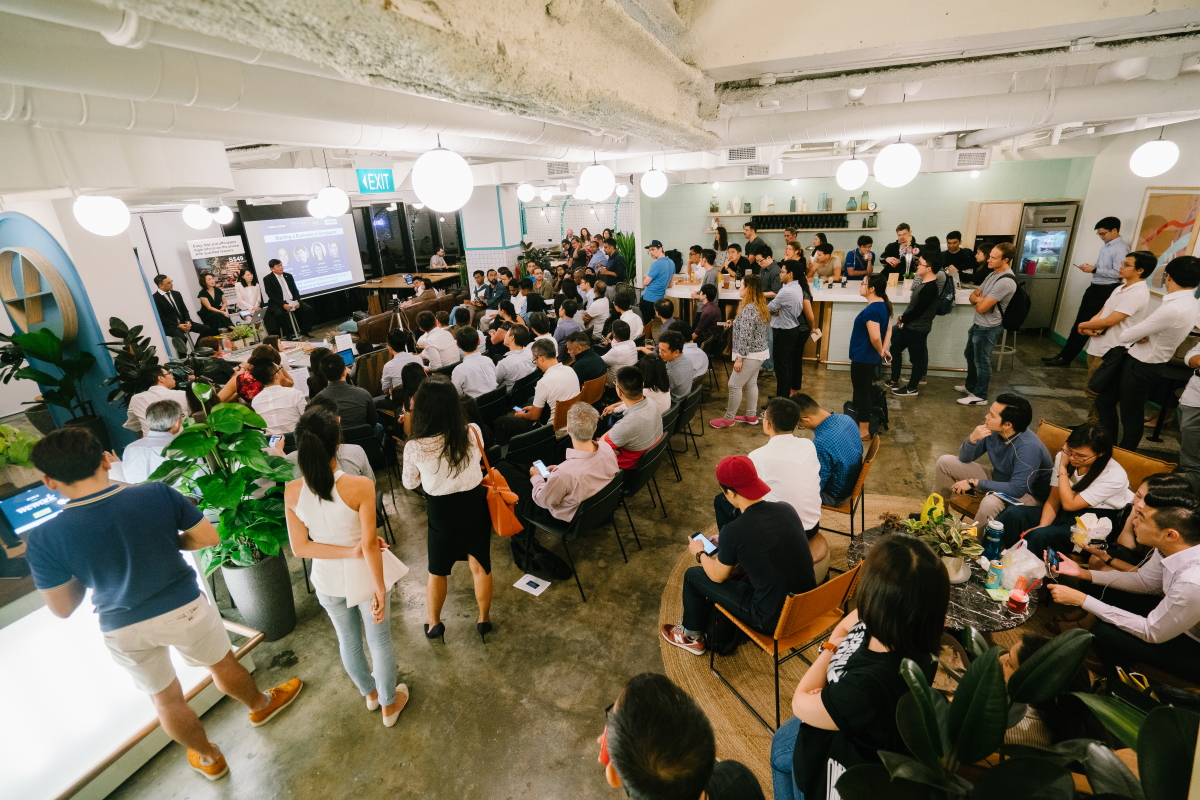The number of tech startups in Singapore has been increasing sharply over the past few years, following the successes of several companies, such as internet consumer firm Sea Limited and Grab Holdings’ food delivery and digital payments app.
Singapore, according to a report by research firm Startup Genome, is currently home to more than 3,800 tech-enabled startups and 190 intermediaries, including accelerators and incubators. The startup ecosystem of Singapore is considered one of the most developed globally, with a valuation of $22.5 bn.
The report also indicated that the median value for Series A financing in the country is on average $4.8 m, way higher than the global average of $2.7 m.
Enterprise Singapore, a government agency supporting entrepreneurs, reported that startups in Singapore raised $3.93 bn in just the first half of 2021, increasing by 150% from the same period in 2020.
In 2019, Singapore recorded more than $19 billion in private equity (PE) and venture capital (VC) assets under management, more than double the combined numbers from its neighbouring countries, Malaysia, the Philippines, Thailand, and Vietnam.
Three of the unicorns – a privately held startup valued at over $1 billion – in Singapore have launched an initial public offering (IPO), namely Nanofilm, Razer, and Sea. Lazada was acquired by Chinese e-commerce firm Alibaba, while Bigo Live was acquired by Chinese streaming firm YY. The five remaining unicorns are Acronis, JustCo, PatSnap, Trax, and Grab, the largest unicorn in Southeast Asia to date.
What makes Singapore an attractive startup destination?
The city-state offers many advantages, including its strategic location and easy access to other Asian markets and English-speaking communities. In addition, government initiatives like tax breaks are attracting more foreign capital.
Avi Naidu of Australian venture capital firm Taronga Ventures described Singapore’s tax system as clear and consistent, making it more attractive to foreign investors.
The Singaporean government provides strong support for entrepreneurship and has established favorable policies for startups, such as grants for first-time entrepreneurs, co-investments, and talent placements.
As part of its Research, Innovation, and Enterprise (RIE) 2025 plan, the government has set aside approximately $18.5 billion to invest in research and development in strategic domains to boost the deep tech sector.
Startups would not run out of talent because the country attracts foreign entrepreneurs and tech professionals to come to the city-state via initiatives like offering Entrepass visas for foreign entrepreneurs.
The government also allows Singapore-based startups to hire foreign employees via Tech@SG and TechPass visas.
In 2017, Startup SG was established to feature Singapore’s startup ecosystem locally and globally. It aims to represent the shared interests of the startup community and unify initiatives for supporting the ecosystem through its programmes.
The following year, it introduced the Startup SG Network, a virtual ecosystem of those belonging to the nation’s tech startup community. Through the platform, local startups are able to pursue growth opportunities as they get recognition from local and global players.
Thriving Singapore startups
Tech startups in Singapore have been thriving in the finance sector in recent years.
Syfe provides digital financial advice via a robo-advisor using mathematical models and algorithms. Its portfolios consist of global equities, bonds, gold exchange, traded funds, and other financial instruments.
The company’s founder and chief executive Dhruv Arora says the startup’s mission is to change the way people grow their money and embed wealth management into everyday life, regardless of life stage and investment goals.
Meanwhile, tech firm BetterTradeOff offers financial planning solutions to give people an idea of how much money they need over their lifetime. The company provides asset management advisors its life-planning platform Up, which can be used for online asset management simulation.
BetterTradeOff’s founder Laurent Bertrand claims that only the rich have access to such services and want to democratize it.
Non-financial tech startups have also increased in numbers in Singapore. Flying Cape, an educational tech firm launched in 2015, provides services that integrate information technology with actual classrooms.
The startup uses artificial intelligence to provide recommendations to visitors of its marketplace website based on basic information such as their age and topics of interest. Adult users may also take classes on topics like robotics and finance.
According to Flying Cape chief executive Jamie Tan, the Covid-19 pandemic provided an opportunity for tech firms to demonstrate how technology impacts education as limitations on face-to-face classes spurred online lessons.
End-to-end internet-connected solutions provider UnaBiz also took advantage of opportunities presented by the global pandemic, focusing on the increased demand for building management sensors for tracking visitors.
Last October, UnaBiz announced that it would be raising $25 million from a group of investors, including Japanese asset management company SPARX Group.










 Australia
Australia China
China India
India Indonesia
Indonesia Japan
Japan Malaysia
Malaysia Philippines
Philippines Singapore
Singapore South Korea
South Korea Taiwan
Taiwan Thailand
Thailand Vietnam
Vietnam Germany
Germany Hong Kong
Hong Kong USA
USA Switzerland
Switzerland Singapore
Singapore
 United Kingdom
United Kingdom







